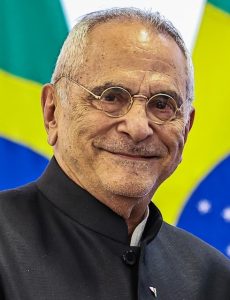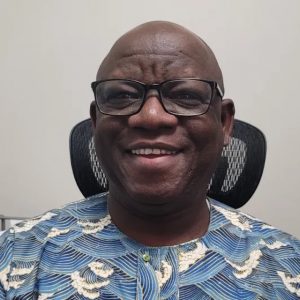Nigeria Needs A New Constitution To Stop Recycling Failed Leaders – Afe Babalola

Legal icon and Senior Advocate of Nigeria, Afe Babalola, has challenged Nigerians to move away from the tradition of recycling those he described as ‘same failed leaders’ for meaningful developments to be recorded in the country.
In a bid to achieve this, he recommended that a new constitution be put in place ahead of the general elections in 2023.
“It is my considered view that a new constitution must be in place before the next election, otherwise we will be recycling the same failed leaders that have brought Nigeria to where it is today,” said the legal luminary who highlighted the 1999 Constitution as the major problem of the nation.
He made the remarks on Monday in his goodwill message as the special guest of honour at the Fifth Ife Institute of Advanced Studies, Summer Institute Programme.
“I have said it over and over again that the problem with Nigeria is the 1999 Constitution foisted on us by the military when it wanted to exit the reigns of governance in 1999, instead of reverting to the 1963 constitution which Nigeria’s founding fathers bequeathed to us.
“After all, the military merely suspended the 1963 constitution when it seized power on January 15, 1996, it did not abolish it,” the senior advocate who founded the Afe Babalola University, Ado Ekiti, added.
According to him, it is lamentable that instead of bringing back the 1963 Constitution which was suspended, the military went to America to import “the presidential system of government to install an all-powerful President and weakened the constituent regions (now states)”.
Transformational, Not Transactional Leaders
The ‘all-powerful President’, he stated, wielded so much power to the extent that when the National Assembly invited him on security matters, he ignored the wish of the representatives of the people by refusing to honour the invitation.
Babalola decried that the present Constitution allowed Nigeria to run the most expensive democracy in the world, with government functionaries earning exorbitant salaries and allowances in a country riddled with unemployment, poverty, and insecurity, among other challenges.
He also noted that the constitution bred those he described as transactional leaders rather than transformational leaders.
On the way out, the legal icon asked those who wish Nigeria to remain an indivisible entity to ensure the 1999 constitution was replaced with a truly federal constitution and a parliamentary system of government.
“The proposed constitution will discourage politics from being the most lucrative business in Nigeria; the constitution must make provision for independent candidates to contest and win elections.
“The constitution must prevent transactional businessmen from contesting elections,” he suggested.






